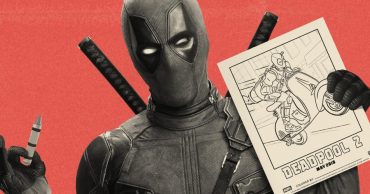
Movies, like art and music, are a matter of personal taste and choice. So no list will include everyone’s personal choices. For this list, you will find a combination of great stories and great actors, leaving you wonder whether it was the story that made the actor, or the actor that made the story. None of the movies chosen for the list precede the 1970’s because many, like The Titanic, have been remade and use modern technology and special effects to enhance the quality of the movie.
Among these movies you will find some that actually stay true to the original book or narrative, which is surprising given that making the transformation from book to film is not an exact science. The more recent movies take advantage of special effects technology and relevant social topics (like racism and terrorism) to end up on the list. The list is in no particular order or ranking.
1. Schindler’s List
More than just another Holocaust story, this movie combines the talents of Steven Spielberg and Liam Neeson to tell a story that is both brutal and in the end, uplifting. We often talk about the millions of Jews and others who were killed in the Holocaust, but rarely about the forced slavery and extreme inhumanity imposed by the Germans. Neeson’s character manages to save 1,000 from execution by simply buying their freedom, but in the end he regrets that he didn’t do more. This movie is one many people refuse to watch because of its large amount of depressing content, yet it is one that needs to be seen to go beyond the exterior characterization of the Holocaust and get a disturbing look at a way of life that to many, was the only type of life they could hope for.
2. The King’s Speech
Admittedly, a friend has recommended this one to me, and I guffawed at the idea of watch a movie about Jolly Old England. The movie shows an untold reality of what was going on within the Royal Family at one of the most critical times of World War II. It has all the essentials of a great movie: great actors, a scandal, the backdrop of a world war, and two people who have their own hidden secrets soon to be revealed. There is also a magical combination of humor and pitiable moments. An honorable mention goes to the roles the women play in directing the course of history behind the scenes.
3. Titanic
Yes, this had to be on the list for any number of reasons, but mostly it is a modern treatment of the loss of the R.M.S. Titanic to a false sense of security, costing more than 1500 people their lives. This version was a combination of romance and tragedy, and despite the expected Hollywood modifications of history, the film portrays the pride, fear, and hope of both those who lived and died. The special effects were the best of its time, and the screening audience had two endings to choose from (the alternate is available through the link).
4. Apollo 13
There was a time that actually flying to the moon and walking on it earned not only national attention, but international interest. That interest was shown when the Apollo 13 crew had run into serious problems even before it had a chance to begin its mission. The film shows the critical nature of communication, cooperation, and the ingenuity of the men and women who took an almost certain disaster and transformed it into a rescue mission. We are taken to see how many little things can go wrong during space expeditions that can endanger the entire crew. It’s not Star Trek, it’s real life.
5. Erin Brockovich
It may come as a surprise, but it took Julia Roberts more than a decade after being nominated for Best Actress in Pretty Woman to actually win her first and only Academy Award for her portrayal of Erin Brockovich. This true story about a woman’s crusade against the behemoth power company (Pacific Gas and Electric) with the support of a law firm resulted in the largest settlement ever awarded in a direct-action lawsuit. Roberts’ performance was nothing less than dominating, but if you pay close attention you will find a lot of details about the world you live in — and why. Like why they put fences around corporate property and the reason it has become increasingly difficult to get access to corporate information (we’re talking about the important stuff). You should also check out deleted scenes that were cut solely because the movie would have been too long.
6. The Hurt Locker
It was decided this was the best of the two directorial attempts by Katheryn Bigelow, the other being Zero Dark Thirty. There is an obsession with the enemy, much like the character in American Sniper, who feels out of place back home in the United States. Bigelow brings to light the unheralded services of the EOD units that risk their lives protecting civilians and soldiers alike by disarming IEDs and other explosive devices in Iraq. At the end of the movie you are left wondering if he would have saved that last man, he would be content to leave the war in Iraq behind and return to his secure homeland.
7. Sully
Many of the true stories made into movies are dramatized, in part because there are a limited number of witnesses. In the case of Sully, there are more than 155 surviving witnesses, all who can attest to the events of January 15, 2009. Clint Eastwood, known for his excellent directing talent and a demonstrated preference for historical films put this film together. What makes it unique is that the story is about an ordinary man doing his job. He never considered himself to be a hero, and unlike other movies on this list, the only reason the word “hero” is used is because the media attached it to him. What we find out during the movie is that the powers that be preferred to make him out to be an irresponsible villain.
8. Hotel Rwanda
Some of the most inconvenient truths about the American people and the world at large come through in this film that reveals the world’s indifference to genocide. A prime example of the indifference is when a video is obtained that shows a man being hacked to death by a group of men is shown. When the Rwandan hotel owner says that the world will intervene after seeing such atrocities, the American reporter says that, “They will look at it and say ‘That’s horrible. And then go on eating their dinners.” But the movie also shows the resourcefulness and courage necessary to deal with times of extreme adversity. As it is said, one person may not be able to do everything but they can do something.
9. The Wolf of Wall Street
The truth is, DiCaprio deserved to win the Oscar for his performance in this movie. (He lost out to the Dallas Buyers Club lead actor Matthew McConaughey.) Several factors likely weighed against him, yet those factors were what made this movie as great as it was. (It lost out to the politically trendy 12 Years a Slave.) First, it was not a trendy type of film. Second, it likely was a borderline X-rated film in some of the scenes. Third, at times it was brutally honest about the ways people make money, not something likely to appeal to the directors of the Academy or their Hollywood power mongers. Based on the stories that are currently coming out of Hollywood, this movie is becoming more realistic by the day.
10. Lincoln
It has been said that Daniel Day-Lewis does just about everything well, and that may be true. Spielberg once again took on a historical project, but narrowed the focus to Lincoln’s last few months in office. This actually worked out very well, as there have been countless movies and attempts at movies to cover the swath of Lincoln’s life. You get a better sense of what Lincoln had to deal with, and sometimes see him unhinged at the political divisions and myopic political aims of his own party. But we also see a Lincoln who is far more involved with the details of the war, so our view is not from above in the political arena but also from the down in the dirt grittiness of the day.
11. Dog Day Afternoon
The gist of the movie is that it is about a bank robbery gone bad. Yet Al Pacino turns this simple theme into a tense, comedic, and dramatic film as he confronts police, the FBI, and manages to get the onlooking crowd behind him. But there are complications, as his partner in crime is gay and the FBI has assessed him to have severely homicidal tendencies. Pacino seems to manage a way out where everybody can save some dignity but this is based on a true story.
12. Mississippi Burning
Gene Hackman has to be considered for the greatest Number 2 man in this history of film. His presence makes all the difference to the movie as a whole. Enemy of the State and Crimson Tide immediately come to mind. Here he is cast with William Dafoe as two FBI agents who are investigating three missing civil rights workers that were in Mississippi to help blacks get out the vote. Since the movie is set in the 1960’s, this comes with a boatload of problems, not only in the search but when the three are discovered murdered. The end connects the actual history of the event with the individual characters in the movie. A must watch if you are interested in the racial culture of the South in the 1960’s.
13. Thirteen Days
Even though the threat of a Cold War nuclear exchange largely remains in our past, the Cuban Missile Crisis is one of the remarkable moments in modern American history. What you learn is how to extricate yourself from between a rock and a hard place, and somehow come out shining on the other end. The life and the culture of the 1960’s is clearly evident in the film, including people gathering around a storefront window to watch the news and how the slightest miscalculation can change the course of negotiations. As you watch the movie you can keep on asking yourself who has the upper hand.
14. The Pianist
Where Schindler’s List explores the depths of the Jewish persecution and concentration camps, The Pianist tells the actual story of a Polish Jew who spends 5 years hiding from the Germans and avoids being captured. Living in the Polish capital of Warsaw which was occupied by German forces, he manages to find the smallest enclaves to avoid capture and lives on a minimal amount of food and water for those years. It is a story of survival, and with a bare minimum of literary license, relates the entire story as recorded in the author’s memoirs.
15. Black Hawk Down
One of the reasons military battles and war films are often the chosen theme for true story films is because there are a number of verifiable accounts to review and a definite interest from moviegoers to hear what is the real story behind the story. Black Hawk Down is a movie about heroes in the face of defeat, but it is definitely not Custer’s Last Stand. This story had to be told in the minds of many of the soldiers who participated in the battles, to the point of having actual Army Rangers appear in some of the scenes. The baseline story is that a group of Army Rangers and Delta Force get trapped during what is supposed to be a simple capture and extract mission in Somalia. The Black Hawk helicopters which transport the men to the target site have top secret technology that cannot fall into enemy hands. It is not enough to save the men aboard the helicopters, but the equipment must also be destroyed. The end of the movie shows that war is not simply about winning and losing battles.
16. We Were Soldiers
Agreed, Mel Gibson is not the most popular actor in Hollywood these days, but his performance in We Were Soldiers is quite good. The critics didn’t think so, but the audience was largely in favor of the movie. One reason is may have missed the mark of its time was because there were so many war movies being shown at the time. One thing that makes this movie unique is the burdens borne by the wives of this first group of soldiers to enter Vietnam. At the time no one knew anything about what they were walking into, and the movie correctly introduces us to the other side of the war by including the soldiers of Vietnam. Some may have not liked the introduction of faith/religion into the movie, one of Gibson’s personal markers, but this was the 1960’s not the 21st century.
17. Syriana
This movie was a disappointment to many people for a simple reason, as explained by Ruthe Stein of the San Franciscan Chronicle, “It’s hard to get passionately swept away by a movie when you’re struggling continually to figure out who’s doing what to whom and why.” Syriana can be looked at as an experiment of sorts, moving away from a linear narrative and instead following three storylines at different times throughout the movie. However, that approach has been repeated with some success, so this movie should not be excluded solely on that criterion. Based on the book “See No Evil” by former CIA Agent Robert Baer, it is an insight as to how things actually work in the Middle East when it comes to oil and politics. Yes, they mix just fine.
18. Munich
This is a movie about terrorism and revenge that took place in Munich, West Germany in 1972. That distant past should remind us that terrorism is not something new, but has been around for decades and can happen anywhere, at any time. The Palestinian group Black September planned and executed the murder of 11 Israeli Olympians at the 1972 Olympic games. But it is more than a revenge motive film, focusing on how the Israeli agent assigned to find and execute the terrorists, questions his morality as he carries out his duties. This is contrast to many movies that portray contract killers as robotic, mindless executioners that are only doing their job. This is real life, which is not as clean and clear.
19. Flags of Our Fathers
With all the protests in 2017 about symbols, whether they are Confederate statues, the American flag, or the people of American history, they have become directly connected with the future direction of the country. This actually revives an idea that has been hidden for some time: that symbols are a critical part of what the country represents. During World War II, the photo of U.S. servicemen raising the flag on Mount Suribachi was spread across virtually every newspaper in the country and served as a way to unite the country under a common cause. Clint Eastwood’s direction follows the trail leading up to that iconic event in American history while honoring the fallen who served.
20. Flight 93
This movie is a sneaky way to avoid having to choose between the host of 9/11 movies. It is not that the movie should be excluded from the list, it is just that it includes the 9/11 attacks without getting wound up in conspiracy theories (for the most part). What actually happened is patched together through phone calls and information gathered through the families’ telephone answering machines. Despite the lack of evidence on what happened aboard all four hijacked aircraft, Flight 93 gives us a glimpse into the lives of the passengers’ last minutes of life.
So this concludes our list. I’ll end this article by briefly explaining why some of the more likely candidates got excluded. There were almost 150 movies to be selected from, and as with any list, not every movie can be included. For the record, I did check out the IMDB and Rotten Tomato scores, but they had very little impact on my final decisions. One of the problems with films that want to tell a true story is that they become more like boring documentaries rather than an entertaining or interesting movies. The Soloist is an example of a movie that ends up predictable, a huge no-no for true story movies. If you can turn on the local news and watch the same thing, you need to stop production now.
Then there are the actors who can get a movie kicked off the list. As much as I like much of Tom Cruise’s work, he was not fit for the part of Valkyrie. Cuba Gooding Jr. in Radio suffers from the same problem, as much as I liked him in Jerry Maguire and As Good as It Gets. True stories about animals are probably best left for cartoons or animation, which is why Secretariat and Seabiscuit failed to make the cut. It’s not like we can get the whole story from the horse’s mouth. Though it may seem strange, Jarhead was eliminated from the list because actual Marines who served said that certain parts were way over the top based on their experience, which made the lead character more like a caricature.
Finally, I will admit I had some serious reservations over one particular movie — The Pursuit of Happyness. Yes, I liked it a lot but I gave the edge to The Wolf of Wall Street because I thought it fit better into modern times. Rage to riches stories are common in the movies, and I thought Wolf was simply more entertaining.
And don’t worry, I never forgot about Argo.
 Follow Us
Follow Us




